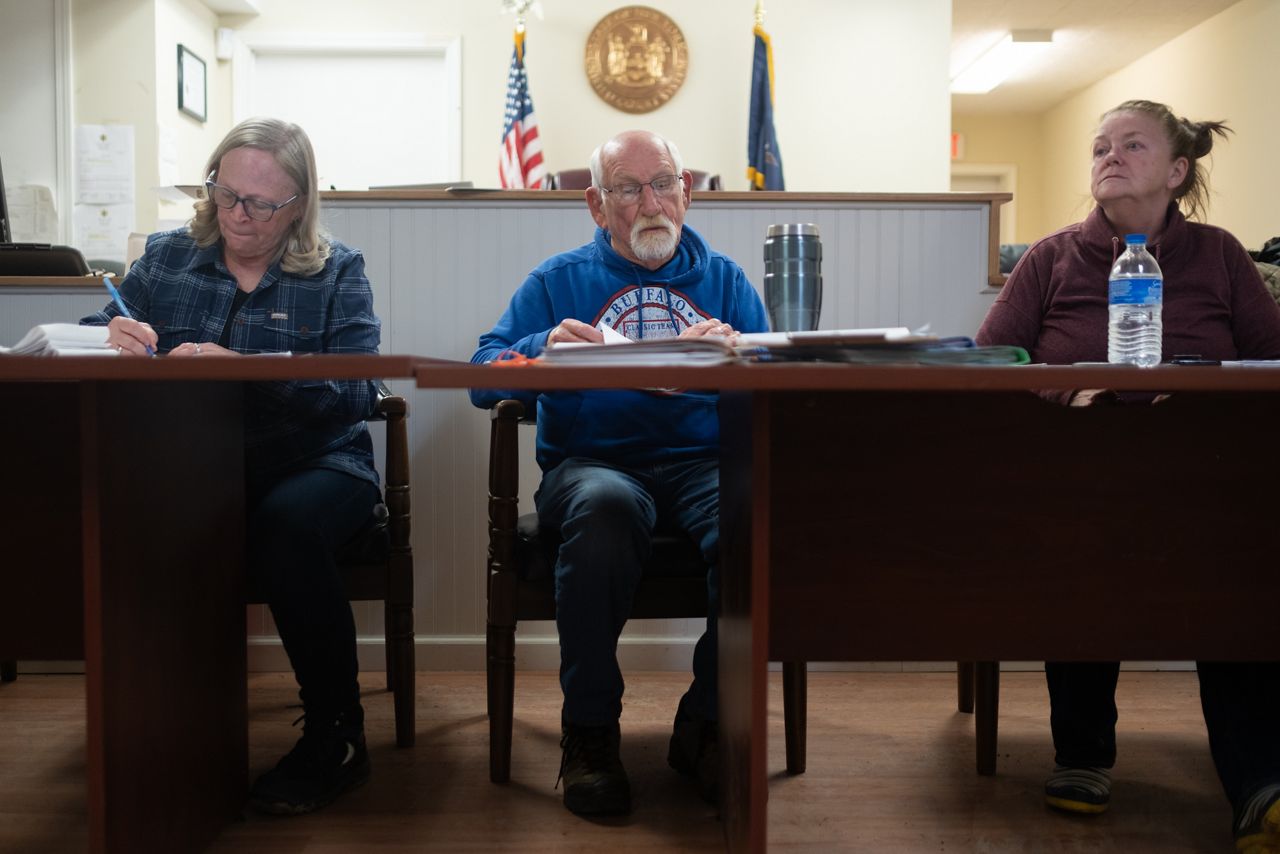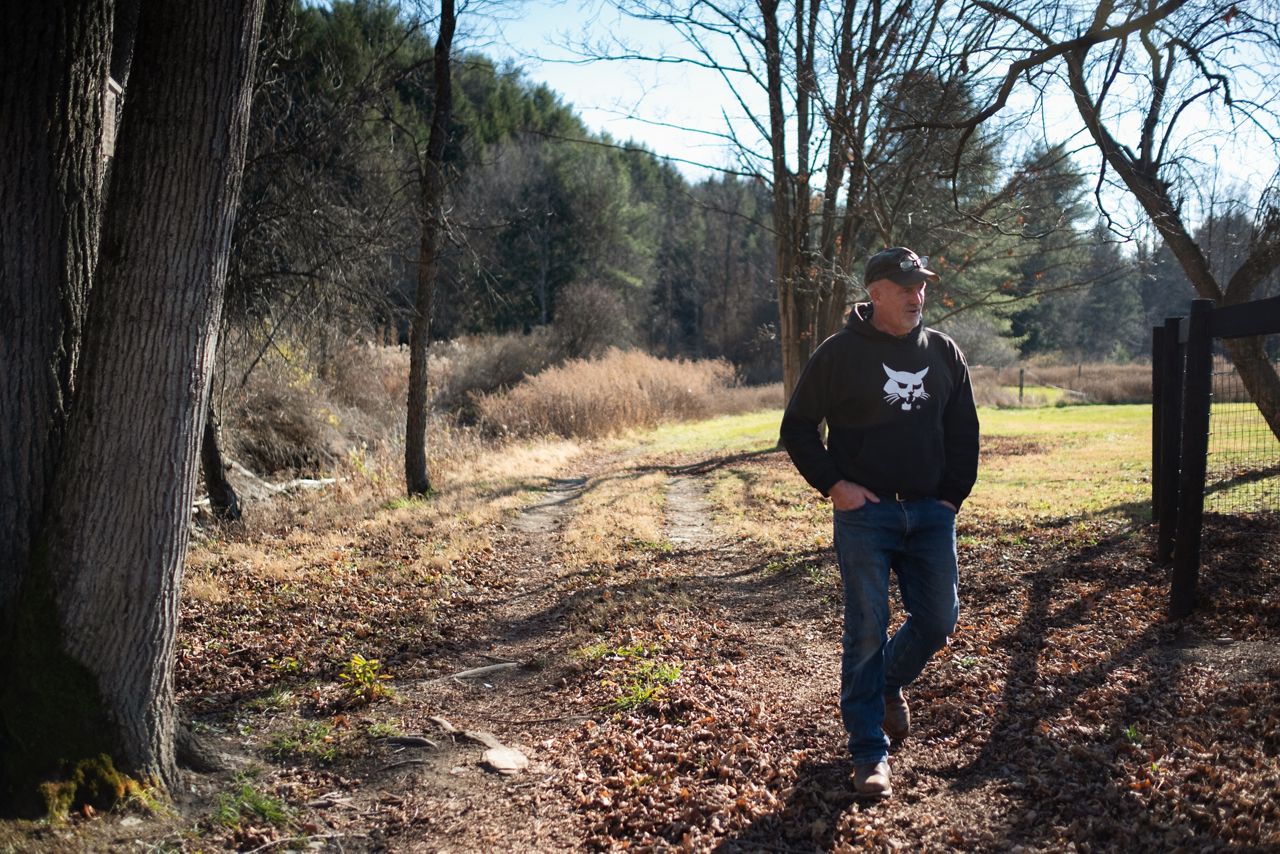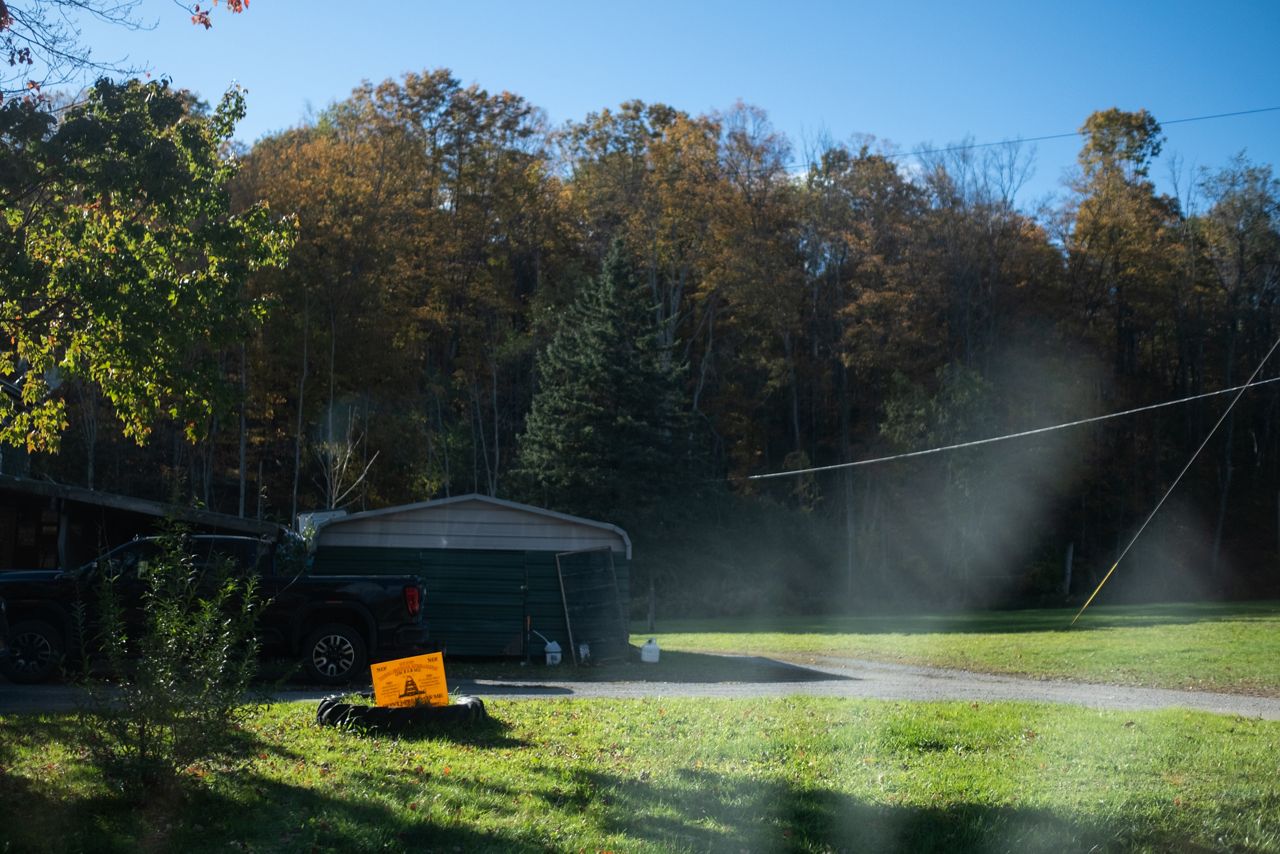Cameron residents in Steuben County have been fighting against the use of sewage sludge for decades, and they are finally seeing progress with local legislation that would ban the spreading of biosolids on farmland.
“I’ve been wanting to have this level of town action for 40, 39 years now,” said Wayne Wells, a resident of Cameron whose creek has been tainted by forever chemicals, which he believes is a result of the neighboring farm’s use of sewage sludge.
While the Cameron Town Board didn’t officially vote on the local law during Wednesday night’s meeting, there was no one opposed to the law at the public hearing.

“There has been nobody saying that we shouldn’t do this law, and I think that’s really important,” Wells said.
Tim Hargrave, another Cameron resident whose creek is contaminated with PFAS, said he is grateful for the action by the town.
“I’m real confident [it will pass] and I’m thrilled. Talking to Wayne, we’ve been dealing with it forever,” Hargrave said. “Right now, I don’t think Casella is going to be able to make anything happen over on Bonny Hill.”

Cameron Town Supervisor Robert Manley said they want to give people who weren’t able to attend the public hearing a chance to send in comments.
Residents of the town have been advocating at the county level for a moratorium or ban on the use of sewage sludge on farmland, but county officials have cited the right to farm law that protects farmers from laws that prohibit agricultural practices in these zones.
“Right to farm is an issue, but back in my days, farmers didn’t spread sludge. They spread cow manure. It’s a very sensitive issue, obviously the county planning [board] did not approve our law. We got the same wording on our documents that Thurston got on theirs,” Manley said.

The town of Thurston has had a law in place since October 2023. The county planning board issued disapproval to both towns for the local laws with the following comment:
“As written the law is overly restrictive of New York State Ag & Markets approved Agricultural Practices on Agricultural District Parcels and therefore may violate the State Right to Farm Law at this time. In addition, the Town does not have authority to invalidate a permit that is used/issued by a State of Federal Agency, Commission, or Board.”
Steuben County Planning Director Marie Myers Shearing declined to be interviewed for this story.
The permit referred to by the county planning board is a land application permit for biosolids on 5226 Bonny Hill Rd., Bath, which was thought to have expired in September 2024, Wells said.
“A renewal application for 5226 Bonny Hill Road in the town of Bath was submitted in a timely manner and pending a final decision, permit coverage for that site is extended in accordance with the State Administrative Procedures Act (SAPA),” said Jeff Wernick, a spokesperson for the New York Department of Environmental Conservation.
Despite the address being listed as Bath, the property falls within Thurston town lines according to the county parcel map.

Thurston Town Supervisor Michael Volino said the disapproval from the county does not mean the local law cannot be enacted.
“As long as we have a super majority in support of the local law, four out of the five votes, we can still override them. Everyone on the board is in favor of it so we will override them, and [it is] the same with Cameron,” Volino said.
Manley said, “Local law says we have the right to do what we want to do, and that’s exactly what we’re doing. It’s well within the law.”
At the state level, a bill proposed in both the Senate and the Assembly would put a five-year moratorium on the use of sewage sludge. Steuben County residents remain hopeful that it will pass in this session despite the state’s push to increase sewage sludge on farmland.
“I was part of that discussion about whether we should go for a ban or a moratorium. It was collectively decided, and I approved of the moratorium because I think that’s something we can get and given the five-year moratorium, if it’s pushed through, I think more information will come forward that will support a ban,” Wells said.

Hargrave said he believes the governor would be put in a difficult position should the legislation get to her desk.
“I really think [Kathy] Hochul would be stepping out on a pretty slippery position there if she did veto this law because it’s gotten so much attention. If it gets to that point where it gets to her desk, I think she would sign a moratorium, I really do, but how much support we get at the DEC level, that’s the trouble because the moratorium is going right up against DEC regulations,” he said.
Despite the action from a town and state level, the U.S. Environmental Protection Agency announced this week they will weaken limits on some PFAS chemicals in drinking water that were put in place in April 2024 by the Biden administration.

The agency will keep in place the 4 parts per trillion standards for PFOA and PFOS, two types of PFAS chemicals that have been linked to human health issues, but the limits on three other types of PFAS will be scrapped. Also, the compliance deadline was extended from 2029 to 2031.
“We are on a path to uphold the agency’s nationwide standards to protect Americans from PFOA and PFOS in their water. At the same time, we will work to provide common-sense flexibility in the form of additional time for compliance,” EPA Administrator Lee Zeldin said.

This action by the federal government confirms for Cameron residents that efforts by the Town Board are critical.
“Who would have faith in EPA that allowed this to happen to begin with? Same way with DEC, I have no faith in these organizations and institutions. They fail. They’ve already demonstrated their failure. That’s why a meeting like this is so important because at least on the local level, here in New York state, we have home rule and we’re exercising the people’s right to protect the wellbeing and health of its constituents,” Wells said.


